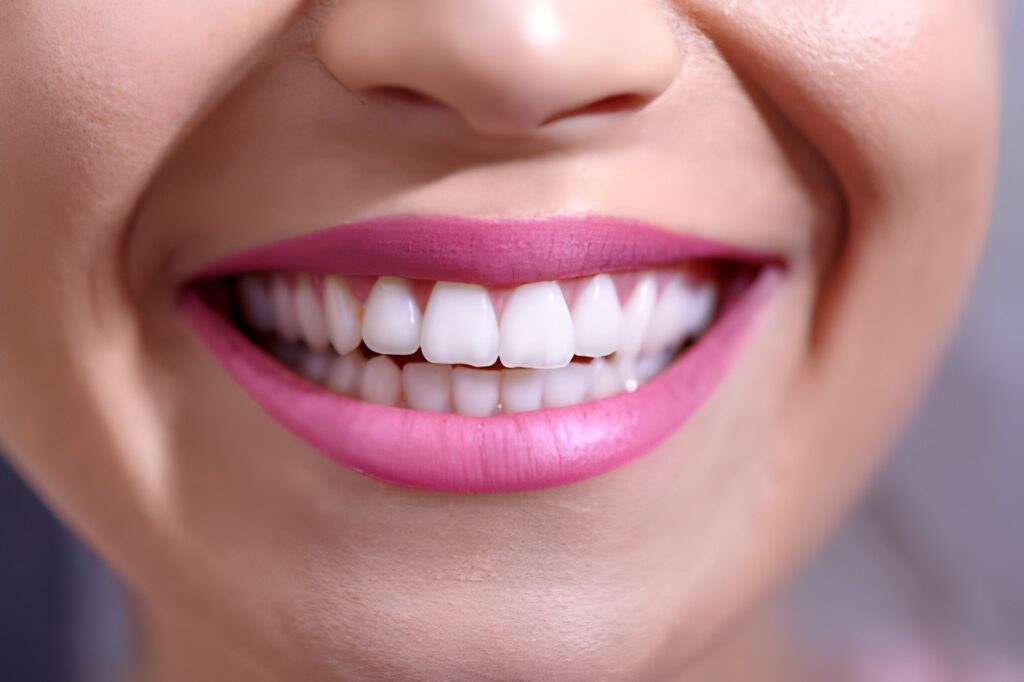Teeth whitening is a popular cosmetic treatment, but for those with sensitive teeth, it’s natural to have concerns about potential discomfort. Here’s a complete guide to help you understand how whitening works, the associated risks, and the safest options available for sensitive teeth.
What Causes Sensitive Teeth?
Before choosing professional teeth whitening in St Helens, it’s important to understand what causes tooth sensitivity. Sensitivity often develops when the enamel wears down or gums recede, exposing the dentin layer underneath. This layer contains tiny tubes that connect to the tooth’s nerve endings, making teeth more reactive to hot, cold, sweet, or acidic foods. Common causes include enamel erosion, overbrushing, gum disease, cracked teeth, or recent dental treatments. Knowing these factors helps your dentist recommend the safest whitening option for your smile.
Does teeth whitening in St Helens cause any sensitivity?
How Does Teeth Whitening Work?
Whitening treatments use active agents such as hydrogen peroxide or carbamide peroxide to break down stains and lighten tooth colour. These agents penetrate the enamel and target deep-set discolouration caused by food, drinks, smoking, or ageing. When carried out under professional supervision, this process is safe and effective, even for patients with mild sensitivity.
How Do Teeth Become Discoloured?
Tooth discolouration can occur in two main ways:
- Extrinsic discolouration: Surface stains caused by tea, coffee, red wine, and smoking.
- Intrinsic discolouration: Deeper stains inside the tooth, often from ageing, medication, trauma, or excessive fluoride.
Understanding the cause helps determine the most effective whitening method.
How many sessions of teeth whitening are needed in St Helens?
Can Teeth Whitening Cause Sensitivity?
Yes, whitening can sometimes increase sensitivity temporarily. The bleaching agents may irritate the nerves inside your teeth, especially if dentin is already exposed. Fortunately, this is a short-term and manageable issue that can be addressed with desensitising toothpaste, fluoride gels, or professional advice.
Is Teeth Whitening Safe?
When carried out correctly, both at-home and in-practice whitening are considered safe. It’s vital to follow instructions and work under a dental professional’s supervision—especially if you have sensitive teeth. Whitening isn’t suitable for children under 16, pregnant or breastfeeding individuals, or those with untreated gum disease or cavities.
Is Teeth Whitening Suitable for Everyone?
Not everyone is an ideal candidate. People with severe sensitivity, large restorations, crowns on front teeth, or orthodontic braces may not see uniform results. Your dentist can assess whether whitening is right for you and suggest alternative options if needed.
How long do teeth whitening results last in St Helens?
Types of Teeth Whitening Treatments
- Home whitening: Custom-fitted trays with mild gel are used over several days or weeks.
- In-chair whitening: A stronger, faster option performed in the clinic.
- Whitening toothpaste or strips: Best for light surface stains.
- Professional combined systems: Treatments using both home and in-chair approaches, designed for sensitive teeth.
Your dentist will recommend the safest method based on your needs and comfort level.
Reducing Sensitivity During Whitening
To minimise discomfort during whitening, try the following:
- Use desensitising toothpaste for two weeks before treatment.
- Choose a lower concentration of whitening gel.
- Reduce contact time or take short breaks between sessions.
- Apply fluoride gels recommended by your dentist to strengthen enamel.
Alternative Options for Sensitive Teeth
If traditional whitening feels uncomfortable, there are gentler alternatives such as whitening pens, remineralising gels, or cosmetic bonding to mask discolouration. For more significant shade changes, veneers may be an option to achieve a brighter smile without irritation.
What is teeth whitening and how does it work in St Helens?
Maintaining Your Whitening Results
Good aftercare is key. Avoid dark foods and drinks for 48 hours after whitening, use a straw when consuming coloured beverages, and maintain excellent oral hygiene. Touch-up treatments may be needed every few months, depending on your lifestyle.
Before and After Whitening
Take a photo before your treatment to track progress. Most patients notice brighter, cleaner teeth within days. Results depend on your starting shade and chosen method—surface stains respond faster than internal ones.
How Long Do Whitening Results Last?
Results usually last from six months to two years, depending on diet, oral care, and smoking habits. Professional whitening offers the most consistent, long-lasting improvement.
Are there different types of teeth whitening treatments available in St Helens?
Teeth Whitening in St Helens
Professional teeth whitening in St Helens can safely enhance your smile, even if you have sensitive teeth. Dentists now use advanced techniques and customised gels to reduce irritation while delivering great results.
Book Your Whitening Consultation at Alverna House Dental Practice
Ready to enjoy a brighter smile without the discomfort of sensitivity? At Alverna House Dental Practice in St Helens, we offer gentle and effective teeth whitening treatments designed to protect your enamel while delivering noticeable results. Our experienced dental team will assess your teeth, discuss your goals, and create a whitening plan that suits your comfort level and lifestyle.
Book your consultation today and discover how Alverna House Dental Practice can help you achieve a confident, radiant smile safely and comfortably.
Frequently Asked Questions
Is teeth whitening safe for sensitive teeth?
Yes. When performed correctly and tailored to your specific needs, whitening can be a safe option for sensitive teeth under professional guidance.
Can I whiten my teeth if I have fillings or crowns?
Whitening doesn’t change the colour of crowns, veneers, or fillings, but your dentist can help ensure a consistent, even look.
How quickly will I see results?
In-chair whitening shows results immediately, while home kits usually take one to two weeks for noticeable changes.
Will whitening damage my enamel?
No. Approved products used correctly won’t harm enamel. Avoid overuse or unregulated DIY methods to stay safe.
How often can I whiten my teeth?
Most people need whitening once every 6–12 months. Follow your dentist’s advice to maintain results safely.



